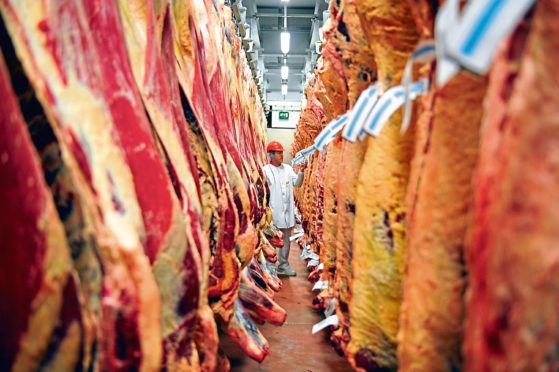Scotland’s food processing industry is working flat out to adjust to market changes, staff absences and new methods of working.
The latest information from Quality Meat Scotland (QMS) indicates meat plants are “generally running smoothly” with limited absences, although reports from Scotland Food & Drink (SFD) estimate absences across the food production base are running between 8-15% due to illness or self-isolation.
One beef abattoir is understood to have reduced its kill in an aim to maximise distancing and minimise potential infection rates amongst staff, and across many production plants line speeds are slowing to enable them to follow the two-metre distance guidance.
Workers are being stopped by police in some areas but QMS say engagement between management and the local police has helped.
Orkney mart has suspended sales for the next few weeks, but elsewhere sales are still being advertised as auctioneers impose a “drop and go” policy.
Meanwhile, supermarket demand remains high for mince and dicing meat, and produce previously destined for burger chain McDonald’s is now being diverted into the retail market.
However, higher value cuts such as roasts and steaks are not meeting the same demand, leading to speculation these parts of the carcase will have to be frozen.
In some workplaces there are reports of growing demands for personal protective equipment (PPE), but the official advice is that additional PPE is not a requirement for food businesses.
SFD advises: “If you didn’t require it before, you don’t now.”
Other repercussions for the meat trade include concerns that closure of tanneries in Italy and the halt to car production across much of the world could lead to a further slump in the hide market.
nnicolson@thecourier.co.uk










